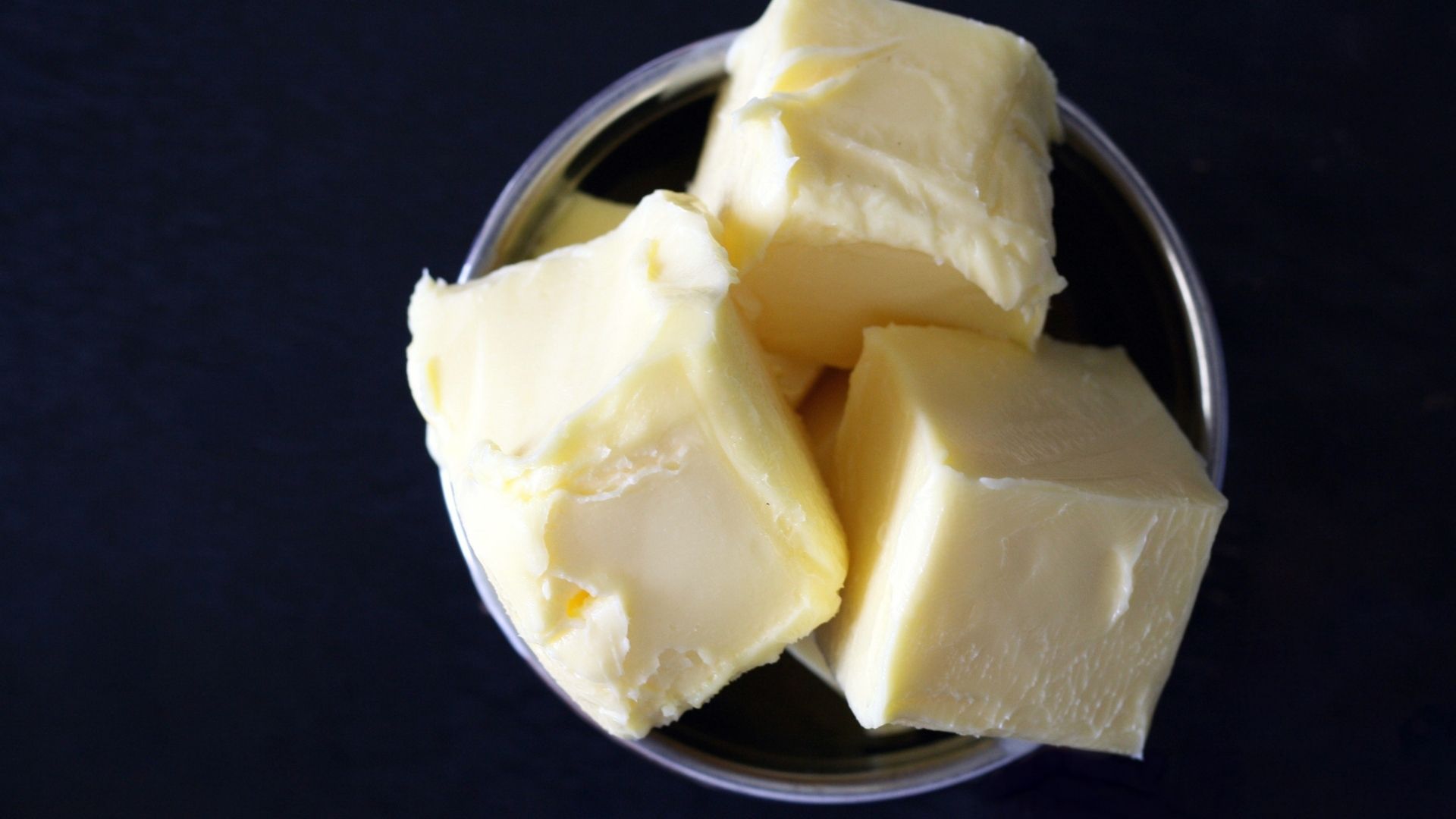Table of Contents
- How Much Butter Are You Really Consuming?
- Why Should You Care About Your Butter Consumption?
- What Does the Butter Consumption Calculator Do?
- Is It Okay to Eat Butter Every Day?
- Why Is Butter Consumption on the Rise?
- How Does Butter Compare to Other Fats?
- Frequently Asked Questions About Butter Consumption
- Take Control of Your Butter Intake Today
Estimated reading time: 4 minutes. Last updated: January 23, 2025.
How Much Butter Are You Really Consuming?
Butter: the creamy, golden indulgence that elevates everything from toast to gourmet sauces. While its taste is nearly irresistible, the key to enjoying butter lies in moderation and mindfulness. This is where the Butter Consumption Calculator comes in—a simple, user-friendly tool designed to help you track, plan, and optimize your butter usage effectively.

Let's dive into why tracking your butter intake is important and how this tool can help you make informed choices for your health and wallet. Along the way, we’ll sprinkle in some wisdom from Reddit users and proverbs to keep things engaging.
Why Should You Care About Your Butter Consumption?
“Butter is life. Just don’t overdo it.”
It’s no secret that butter holds a special place in many kitchens. However, as delicious as it is, butter is high in saturated fats, which can contribute to increased cholesterol levels if consumed in excess. On the flip side, butter also offers benefits, including vitamins A, D, and E, which support your skin, bones, and immune system.
Striking a Balance: The American Heart Association suggests limiting saturated fats to 5-6% of your daily calorie intake—roughly 11-13 grams for someone consuming 2,000 calories daily. Since a tablespoon of butter contains about 7 grams of saturated fat, it’s easy to exceed the limit without realizing it.
The Butter Consumption Calculator empowers you to see exactly how much butter you consume weekly, monthly, or yearly, helping you stick to guidelines while enjoying this delicious ingredient.
What Does the Butter Consumption Calculator Do?
This intuitive tool is designed to simplify your dietary planning. By entering a few basic details—such as how often you use butter, your portion sizes, and the number of people in your household—it provides a comprehensive snapshot of your butter consumption.
- Track Your Intake: Gain insights into your weekly, monthly, and yearly butter use.
- Plan Smarter: Avoid food waste and save money by buying just the right amount.
- Stay Health-Conscious: Align your butter consumption with your health goals.
Is It Okay to Eat Butter Every Day?
This is a common question. The answer? It depends on your overall health and dietary habits. For most people, 1-2 tablespoons per day is a reasonable limit. However, if you’re managing conditions like high cholesterol or heart disease, even smaller portions might be better.
"Grass-fed butter has a pretty good nutrient profile."
Grass-fed butter, often praised for its richer nutrient content, may offer slightly better health benefits than regular butter. But even with this option, moderation remains key. The Butter Consumption Calculator can help you visualize how your daily habits stack up against recommended guidelines.
Why Is Butter Consumption on the Rise?
“Grass-fed butter is much better than any margarine product. It’s delicious and keeps you fuller longer.”
Butter has been enjoying a renaissance, partly thanks to the rise of low-carb and keto diets, which emphasize high-fat foods. Additionally, many people are moving away from processed spreads like margarine in favor of natural options like butter. While this trend reflects a growing appreciation for whole foods, it’s essential to keep tabs on your consumption to avoid overdoing it on saturated fats.
How Does Butter Compare to Other Fats?
Butter has its nutritional merits but isn’t the only option when it comes to fats. For example, olive oil—rich in monounsaturated fats—is often considered a heart-healthier choice. Tools like the Butter Consumption Calculator and the Olive Oil Consumption Calculator allow you to compare these fats and make balanced decisions about your diet.
“Balance is not something you find. It’s something you create.” – Anonymous

Frequently Asked Questions About Butter Consumption
Is Butter Bad for You? Not necessarily. Butter is best enjoyed in moderation because of its high saturated fat content.
Can I Swap Butter for Healthier Options? Absolutely! Alternatives like olive oil, avocado, or nut butters can offer a similar richness with different nutritional benefits.
How Does Butter Affect Cholesterol? Butter can raise LDL cholesterol (the "bad" cholesterol), so it’s wise to keep an eye on your intake if you have a history of high cholesterol.
“Moderation in all things, including moderation.”
Take Control of Your Butter Intake Today
Butter is a flavorful, versatile ingredient that can be part of a healthy diet when enjoyed mindfully. With the Butter Consumption Calculator, you can track your usage, plan meals efficiently, and make smarter choices for your health and wallet.
- Save money by buying only what you need.
- Reduce waste and contribute to sustainability.
- Ensure balanced nutrition for your family.
Click here to try the Butter Consumption Calculator now —it’s fast, easy, and free!
Related Tools
- Egg Consumption Calculator - Optimize your egg purchases and reduce waste.
- Milk Consumption Calculator - Avoid milk spoilage while meeting your nutritional needs.
By staying informed and leveraging these tools, you can enjoy butter responsibly while optimizing your overall nutrition. Happy calculating!
- American Heart Association. "Saturated Fat."
- Harvard T.H. Chan School of Public Health. "Types of Fat."